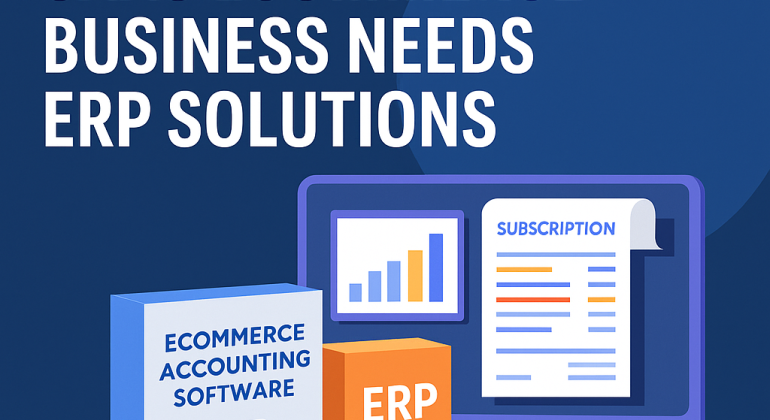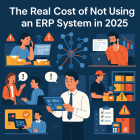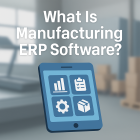Why SaaS Ecommerce Businesses Need Specialized Accounting Software
When it comes to finances, there are a lot of moving parts that a SaaS ecommerce business owner has to juggle. It’s not like running a traditional business where you just sell a product, take the money, and call it a day. SaaS operates differently, generating revenue from customer renewals, subscriptions, and consistent payments that sustain operations. However, managing this steady stream of income with basic accounting software can quickly become challenging. That’s where ERP solutions and ecommerce accounting software come in. It’s not just a fancy add-on; it’s a necessity for any subscription-based business.
The thing is, having the right tools isn’t just a nice-to-have—it’s an absolute must. These tools do more than just help you balance the books. They take the guesswork out of tax management, keep expenses in check, and give you a crystal-clear view of your revenue. Without them, you’re stuck spending hours manually logging transactions, crossing your fingers that you didn’t make a mistake. Worse, you’re constantly trying to untangle a mess of spreadsheets and hand-written records. But with the right software, all that stress disappears. Everything’s automated. It’s like having a personal finance assistant that never makes a mistake.
Let’s walk through the unique accounting challenges SaaS ecommerce businesses face and explain how specialized software can transform how you manage your finances.
Understanding the Challenges of Accounting in SaaS Ecommerce
Running a SaaS ecommerce business isn’t like selling t-shirts or gadgets. It comes with its own set of financial hurdles that regular accounting software just can’t handle. We’re talking about keeping track of recurring revenue, juggling multiple currencies, making sense of tax rules that seem to change every other week, and recognizing revenue at the right time. Each one of these can trip you up if you’re not careful.
Making Sense of Recurring Revenue and Subscription Models
At the heart of every SaaS business is recurring revenue. Your customers aren’t just buying something once—they’re subscribing. They’re paying you consistently, whether it’s every month, every quarter, or once a year. And while that’s great for cash flow, it’s a nightmare for accounting if you’re not prepared.
You can’t just log all the income as soon as a customer pays. That payment has to be spread out over the service period. And if customers decide to upgrade, downgrade, or cancel their subscriptions, you’ve got to keep up with all those changes too.
This is where ecommerce accounting software truly excels. It handles all of that automatically, keeping your revenue numbers accurate without forcing you to update them manually every time something changes.
Navigating Multi-Currency Transactions Without Losing Track
If you’re selling your service to customers all over the world, you’re not just dealing with different currencies—you’re dealing with exchange rates that can change daily. Keeping track of those changes manually isn’t just frustrating—it’s a recipe for mistakes.
However, with the right software, you don’t need to worry about it. The system automatically records transactions in the correct currency, applies the right exchange rate, and even adjusts for currency fluctuations when needed. So whether you’re getting payments in dollars, euros, or yen, your books stay accurate.
Handling the Headaches of Tax Compliance
Let’s talk about taxes, as they can cause a SaaS business more trouble than any other issue. Digital products and services are a grey area when it comes to tax laws. Different countries (and even different regions within countries) have their own rules, and those rules are always changing.
One minute you’re compliant, and the next, you’re getting hit with penalties because of a new regulation you didn’t even know existed. Specialized ecommerce accounting software takes that headache away. It keeps up with tax rate changes, automatically calculates VAT or sales tax based on your customer’s location, and even generates accurate tax reports without you having to lift a finger.
Making Sense of Revenue Recognition Standards
Revenue recognition is another tricky area for SaaS businesses. You can’t just book revenue as soon as you receive payment. Instead, you need to recognize it as you deliver the service—following standards like ASC 606.
Manually tracking this for every customer can turn into a full-time job. But with the right software, the process is automated. Payments are spread across the subscription period, and your financial reports always reflect reality. It’s one less thing to worry about.
Why Your SaaS Business Needs Specialized Ecommerce Accounting Software
Traditional accounting software is inadequate for SaaS ecommerce. It’s great if you’re running a retail store, but it falls flat when you’re dealing with subscription models, multi-currency transactions, and complicated tax rules. What you need is software built specifically for your business model.
Streamlining Billing and Invoicing
If you’re still creating invoices by hand, you’re inviting mistakes. In a subscription business, billing is non-stop. Every month, customers are being charged. And if you’re manually managing that, you’re going to end up with missed payments, incorrect charges, and frustrated customers.
But with specialized software, all of that is handled automatically. Customers are billed on schedule, payments are collected, taxes are applied correctly, and invoices are sent out without you having to touch a thing.
Getting Clear, Accurate Financial Reports Without the Hassle
Your financial reports are the backbone of your business. They show you where you’re making money, where you’re losing it, and how you’re performing overall. But for a SaaS business, those reports can get complicated fast.
Specialized software takes the headache out of this. It generates profit and loss statements, balance sheets, and cash flow reports automatically. You get a clear view of your financial health without spending hours poring over spreadsheets.
Real-Time Insights for Smarter Decisions
One of the best things about using specialized software is that you’re never in the dark. At any moment, you can see your key metrics—monthly recurring revenue, churn rate, customer lifetime value—all in real-time. If something’s off, you catch it right away.
Choosing the Best Ecommerce Accounting Software for Your Business
So, how do you pick the right software? Start by thinking about your needs. Are you selling globally? Do you deal with multiple currencies? Do you have complex tax requirements? Make a list of must-have features.
Look for software that integrates with your ecommerce platform whether that’s Shopify, WooCommerce, or BigCommerce. Make sure it can handle different currencies, offers a customizable dashboard, and has solid security features.
And don’t just take the provider’s word for it. Read reviews. See what other SaaS businesses are saying. Take advantage of free trials to make sure the software actually fits your workflow.
Conclusion
In conclusion, managing finances for a SaaS ecommerce business can be complex, but it doesn’t have to be. With specialized ecommerce accounting software, you can automate billing, track recurring revenue, handle multi-currency transactions, ensure tax compliance, and maintain accurate financial reports—all without the usual headaches. Investing in the right tools simplifies your accounting processes, saves you time, and gives you a clear view of your business’s financial health.






Recent Comments